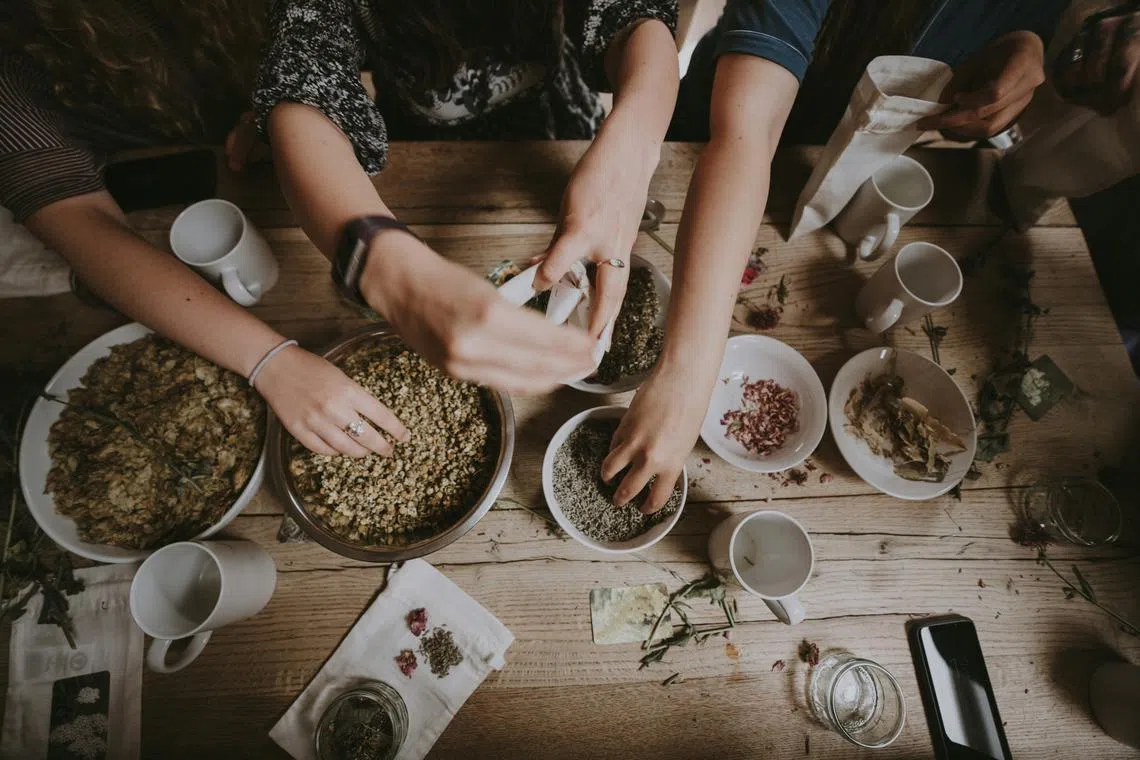New biopiracy treaty mandates disclosure of source for patents on traditional remedies
Sign up now: Get ST's newsletters delivered to your inbox

More than 190 nations finally agreed on the new treaty at the diplomatic conference in Geneva.
PHOTO ILLUSTRATION: UNSPLASH
Follow topic:
SINGAPORE – Imagine a company patenting a centuries-old herbal remedy from a traditional community and using it in a lucrative health supplement it makes millions from, without sharing any of the profit with, or even acknowledging, the community that shared the formula.
Such biopiracy, which undermines the intellectual property rights of indigenous and local communities, will now be addressed and prevented due to a new World Intellectual Property Organisation (Wipo) treaty adopted on May 24.
The treaty mandates that anyone seeking patents for innovations derived from genetic resources and traditional knowledge must disclose the country of origin or source of these resources, and/or acknowledge the indigenous communities who contributed the associated traditional knowledge.
While genetic resources such as those found in plants, animals or microorganisms cannot be directly protected as intellectual property, inventions – such as cosmetics, medicines, biotechnology and food supplements – developed using them can be patented.
Traditional knowledge, as defined by Wipo, includes the “knowledge, know-how, skills and practices that are developed, sustained and passed on from generation to generation within a community, often forming part of its cultural or spiritual identity”.
The new disclosure international law will enter into force when at least 15 member states have ratified the treaty.
More than 190 nations finally agreed on the new treaty at a diplomatic conference in Geneva. The treaty was 25 years in the making, as talks were often clouded by uncertainty and pitted developing countries against developed ones.
Speaking with Singapore media via videoconference on May 29, Wipo director-general Daren Tang said: “These are historic achievements, long championed by many member states, that will safeguard wisdom, protect biodiversity while at the same time, increase transparency in the patent system and strengthen innovation.”
In a widely publicised case, the non-governmental organisation Pesticide Action Network (PAN) in Indonesia launched an anti-biopiracy campaign against well-known Japanese cosmetics firm Shiseido in 1999.
Shiseido had patented several Indonesian traditional formulas of herbs and spices, among which were anti-ageing agents made from sambiloto or green chiretta (Andrographis panicurata) and kemukus (Piper cubeba), and hair tonic from Javanese chilli.
Apart from the herbs themselves, the chemical compounds within the herbs – rare compounds unique to traditional Jamu that have skin-whitening, hair restoration and skin rejuvenation effects – were also patented.
Every time someone bought skin-whitening products from Shiseido’s “UV White Range”, or the Skin-Whitening Formula, they unwittingly supported the biopiracy, PAN said.
Other examples include patents that tap the wound-healing properties of turmeric, which had long been known in India; and patents related to neem tree extracts, also used for centuries in India to treat inflammation, infections, fever and skin diseases.
It is currently not mandatory to publish the origin of innovations and many developing countries are concerned that patents that circumvent the rights of indigenous people are being granted.
“With the new Wipo treaty, we were able to reconcile both worlds by establishing in the international patent a mandatory disclosure regimen on access to genetic resources and associated traditional knowledge,” said Mr Tang, a Singaporean who assumed his position in Wipo on Oct 1, 2020.
The pact is a strong signal that multilateralism is alive and well at Wipo, he said, adding that Singapore, with its rich heritage and being one of the most technologically advanced countries, can play a role in strengthening international agreements by pushing through such treaties.
“One thing that’s really unique about Singapore is that it is a country with very strong research and development, very strong technology, and a rich heritage of thousands of years. And I really think that Singapore can continue being a bridge,” he added.


